Sir David Attenborough wants Children to Gain a “Foundation Stone” of Science
The natural curiosity of children with their desire to collect and understand the world around them is being suppressed as the are too many restrictions and laws today. That is the view expressed by veteran natural history broadcaster and naturalist Sir David Attenborough, who believes that young people are being denied the chance to learn about the world around them because of restrictions on collecting items from the countryside.
Sir David Attenborough
Sir David spoke about his concerns at the launch of a new organisation aiming to promote the teaching of biological sciences – The Society of Biology. He considers that much of the legislation brought into the UK to protect threatened species and environments has resulted in declining opportunities for young people to collect other non-protected species and so learn about the natural world around them. Sir David commented on the many restrictions imposed on fossil collectors, those locations where people can freely collect fossils in the UK are becoming fewer and fewer. The lack of access was stifling the enquiring minds of the next generation of scientists he claimed.
Sir David’s comments are particularly pertinent, what with the granting of the first two injunctions against professional fossil collectors extracting fossils from Dorset cliffs.
To read more about these injunctions: Rogue Fossil Collectors on England’s Jurassic Coast Face Ban.
He stated:
“Children become interested in natural history because they are natural collectors. It is a pity that it is not possible to allow them to go out and collect any more. Not to be able to collect a wild flower or fossils is sad.”
Whilst we at Everything Dinosaur accept that the loss of many fossil hunting sites is a great shame, we are also aware of the great damage done to many locations by professional fossil collectors who literally smash up locations in their search for specimens that they can sell.
The Joy and Excitement of Finding that Special Fossil
When asked about the decline in the public’s ability to identify species of animals in the world around them, Sir David stated that:
“Taxonomy is the foundation stone of the biological sciences.”
He went onto bemoan the lack of opportunities children have to collect and classify insects, animals and other objects saying that:
“It is a great loss to our children that they are prevented legally from collecting animals.”
Helping Children Explore Nature
By allowing children to collect and classify insects, animals and other objects they found around them helped them to learn the skills needed for taxonomy, the science of classifying species. It is certainly true, that many great scientists such as Napier and Darwin were fascinated from an early age with the natural world and in Victorian England there was a huge fashion for collecting, whether it was ferns and plants or even butterflies and birds eggs. Putting together vast collections was seen as an appropriate hobby for Victorian gentle folk to indulge in. Sadly, legislation became increasingly necessary as these natural resources were rapidly exploited and species became endangered.
Today there are a number of laws and voluntary codes in place. These are designed to protect our natural world, although these restrictions do inhibit the opportunities children may have to learn more about subjects such as botany and biology.
Commenting on the current legislation, Sir David Attenborough said:
“I hope we might be able to shift legislation in a more intelligent and generalised way that will not be so specific.”
We remember the joys of pond dipping, collecting frogspawn and observing the tadpoles metamorphosize into frogs, catching butterflies and watching caterpillars pupate. Teachers and teaching assistants have a role to play in helping to fire the imaginations of children. The National Curriculum does empower teachers to develop creative and thoughtful ways of meeting the requirements of the syllabus. Indeed, teachers and teaching staff along with parents can have a huge influence on the development of an interest in the sciences amongst children.
Sadly, when it comes to fossil collecting there are fewer and fewer opportunities to take groups out these days. We have helped to overcome this problem to some extent by building trays that we fill with sand, gravel and fossils – bringing the joy of fossil hunting to children in those areas where they may not be able to go and experience it for real.
One of the Everything Dinosaur Portable Fossil Beaches in Action
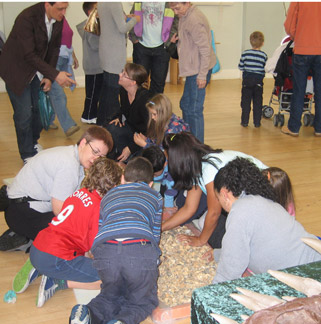
Picture credit: Everything Dinosaur
For educational games and toys visit Everything Dinosaur’s website: Dinosaur Toys and Games.
A spokesperson for Defra (The Department for the Environment, Food and Rural Affairs) said that the legislation was not intended to stop children from exploring or learning about the natural world.
She stated:
“It is important to protect plants, birds and animals from damage and disruption and to help preserve an important part of our heritage so that we can enjoy the benefits for years to come. The legislation does not prevent children and adults from exploring and learning about the natural world and we encourage them to enjoy the beauty of the countryside.”


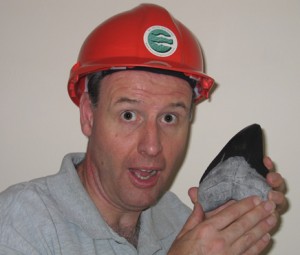
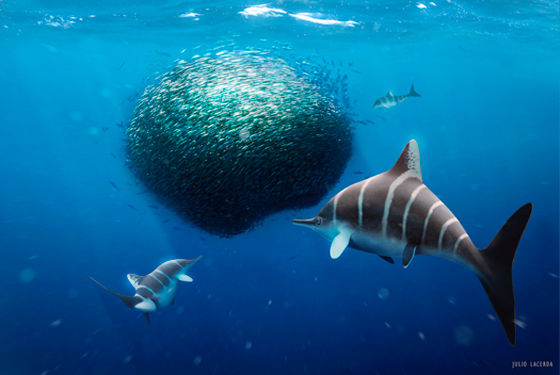

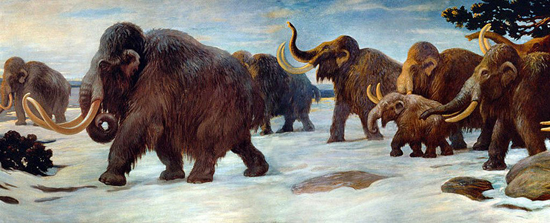
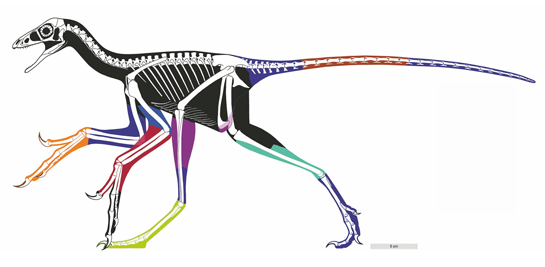
Leave A Comment